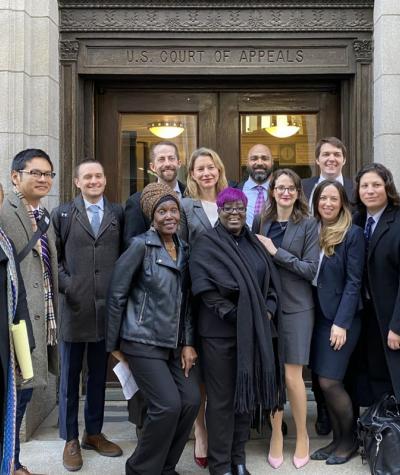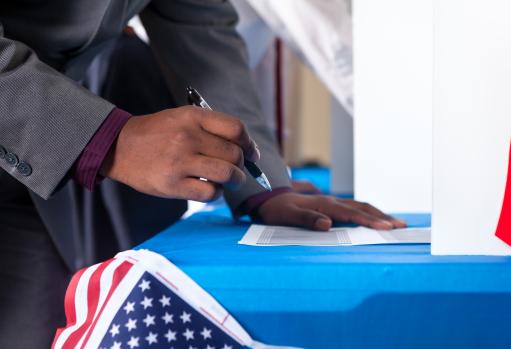Campaign Legal Center (CLC) co-director of voting rights and redistricting Danielle Lang appeared before the U.S. Circuit Court of Appeals for the Eleventh Circuit to highlight the injustice of using wealth-based discrimination to stop hundreds of thousands of people from voting.
Florida’s anti-voter law, passed in the summer of 2019, has made it hard or impossible for people with felony convictions to vote if they struggle to pay legal financial obligations like fines and fees.
Lang urged the three-judge panel to block the state of Florida’s appeal of an incremental but positive decision from the lower court. The state of Florida’s arguments sought to undermine the bedrock constitutional principle that the right to vote cannot be denied on the basis of wealth.
Lang’s appearance, with co-counsel Julie Ebenstein of the ACLU, was on behalf of 17 individual Floridians and comes exactly three weeks before Florida’s presidential primary voter registration deadline, February 18.
Amendment 4 was passed because voters rejected the clemency process that Florida previously used – which had placed voting rights restoration squarely in the hands of the Governor. That process was purely discretionary, and often led to 10-12 year wait times due to an immense backlog of applications.
Lang said that voters rejected this process when 5.2 million voters went to the polls to support automatic rights restoration, “The right to vote is preservative of all other rights. The permanent exclusion from voting is an extraordinary punishment.”
She made reference to CLC client Bonnie Raysor, who may be barred from voting for a decade if the state wins the case, since she makes minimum wage and is currently on a long-term payment plan.
The voting rights of hundreds of thousands of low-income Floridians remain at risk of disenfranchisement until a final decision in the case is made.
Early voting in Florida’s primaries begin on March 7, 2020.
--
If you have a felony conviction and are unsure of your voting rights eligibility, please visit RestoreYourVote.org, CLC’s free public education tool.

